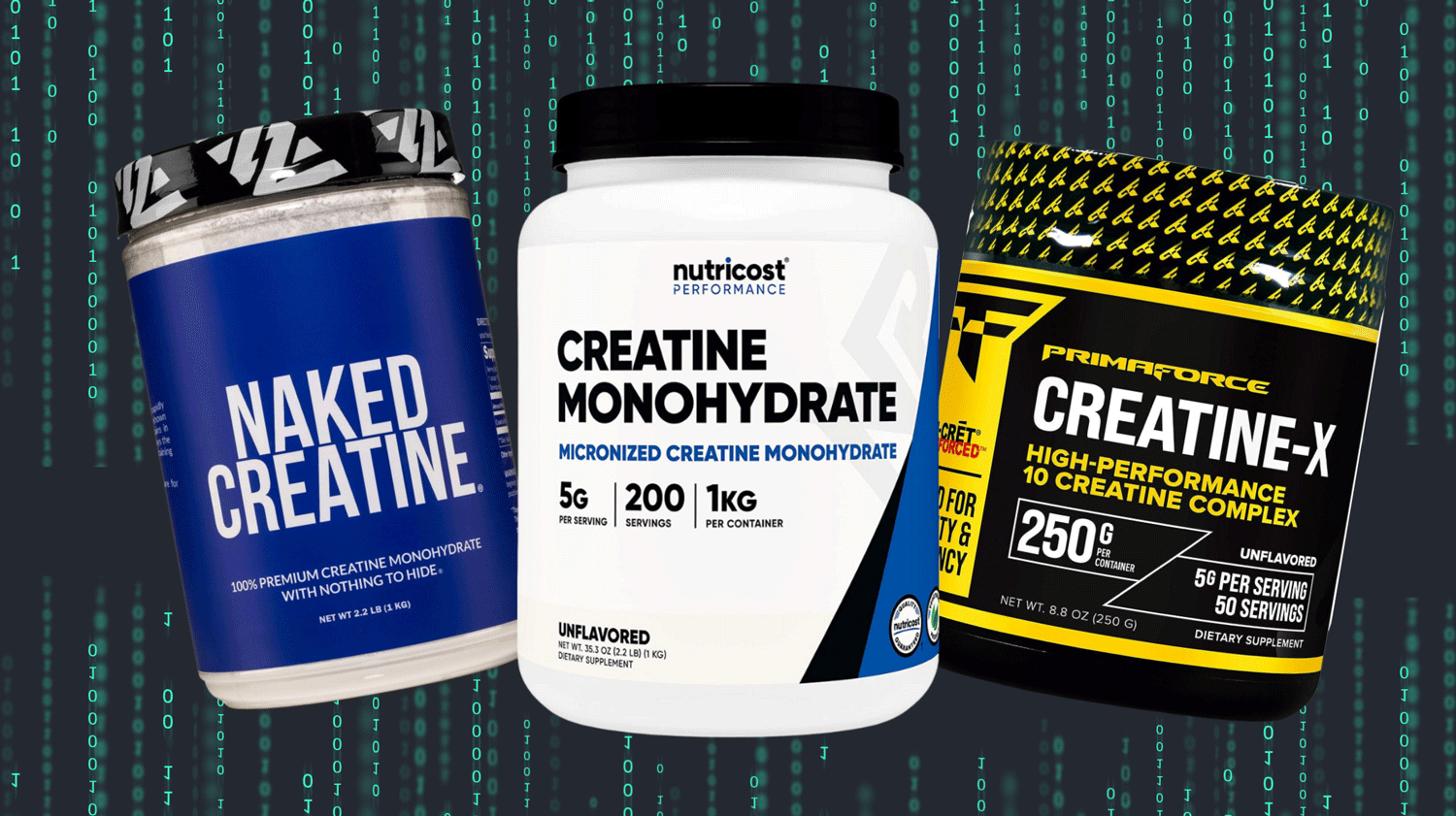Does Creatine Cause Hair Loss?
Here’s What the Science Says


When it comes to peak performance and muscle enhancement, creatine stands as the undisputed champ. Significant scientific research underscore its benefits, spanning a range of sports and catering to athletes with a consistent promise of efficacy and safety.


WHAT IS OUR #1 CREATINE SUPPLEMENT?
Check Our Ranking of the 12 Best Creatine Supplements for 2023
Introduction
Beyond just amplifying athletic performance, creatine has a wide range of health benefits like bolstering muscle development and sharpening cognitive abilities, positioning it as one of the most versatile supplements on the market. Its cost-effectiveness and neutral flavor further elevate its stature, offering consumption adaptability tailored to your routine.
While its value is undeniable, skepticism naturally arises, doesn’t it? In spite of the overwhelming evidence affirming creatine’s safety for virtually everyone — even those with underlying health concerns — it’s prudent to weigh potential side effects.
A concern about creatine that continues to resurface is that creatine might cause hair loss. While there’s a sliver of truth to this, it’s crucial to understand that this minor risk shouldn’t overshadow your pursuit of enhanced muscle vigor and vitality.
Let’s look at the science and separate the fact from fiction.
Revealing the Truth about Creatine and Hair Loss
While DHT is connected to certain hair loss instances, the DHT concentrations in this study fell within normal ranges. Notably, no study unequivocally associates creatine supplementation with direct hair loss or baldness. Furthermore, the differences in DHT levels in the study stem from baseline variances.
Therefore, attributing these differences solely to creatine falls short. A variety of factors could elevate subjects’ DHT levels during the evaluation. In science, the intricate relationship between creatine and hair loss remains inconclusive. Hormones, physiology, and various variables urge caution in forming definitive conclusions.


Is Creatine Linked to Hair Loss?
Let’s clear the air: There’s no real evidence linking creatine to hair loss.
While it’s important not to dismiss study results without thought, we must also consider the overall weight of scientific research.
A limited dataset from over a decade ago hinted at a potential correlation between creatine supplementation and a hormone associated with potential hair loss. However, it’s essential to highlight that subsequent studies have struggled to reproduce these initial findings convincingly.
When we take all aspects into consideration, the argument that creatine negatively affects hair health is not well-founded.
Understanding the Root Causes of Hair Loss
Understanding Creatine?
Creatine in Action
How Can I Acquire Creatine from Food?


The Advantages of Creatine
Elevating Performance
Promoting Muscle Growth and Accelerating Recovery
Nurturing Mental Health and Cognitive Function


Limitations of Creatine Usage
Creatine’s safety as a supplement is clear, with minimal drawbacks in appropriate five-gram daily doses. Caution is warranted for doses over 10 grams to sidestep potential gastrointestinal discomfort. Excessive high-dose loading isn’t imperative. Initial weight gain, resulting from water retention in muscle cells, holds relevance for athletes in distinct weight classes. Thoughtful planning can counteract this outcome. By comprehending these finer points, individuals can make well-informed decisions regarding Creatine use, maximizing its advantages while managing limitations.
Is Your Scalp Truly at Risk from Creatine?
Rest assured, your scalp’s safety remains intact. The connection between creatine and hair loss, as sensationalized by the media, is not a cause for alarm.
While a single study did observe heightened DHT levels among participants after a brief period of supplementation, it’s important to note that these changes cannot be definitively linked to creatine use. Furthermore, these levels remained well within the expected range.
Clearly, hair loss is an uncommon occurrence in relation to creatine usage. Considering the numerous benefits of creatine, any hesitations are rendered insignificant.
The gains from an investment in creatine are substantial, far outweighing any minor concerns.
Your Creatine Questions… Answered.
Check out these related articles to learn more about creatine:

